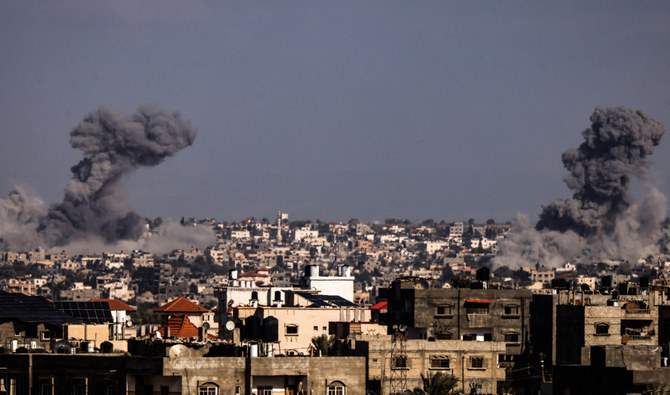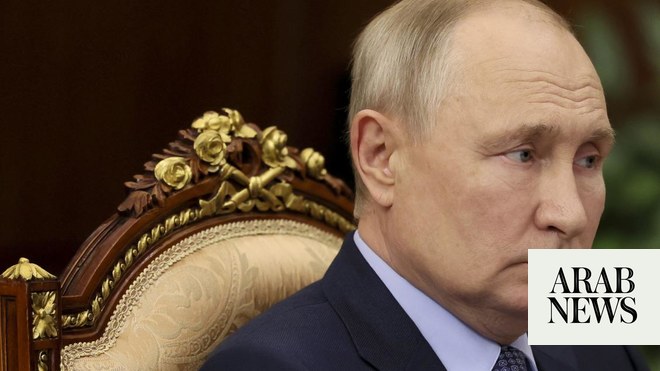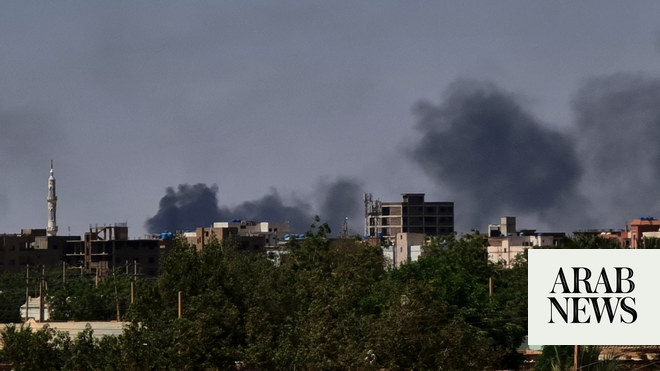
Assistant Secretary of State Barbara Leaf also highlights need to improve the humanitarian situation, secure release of hostages, and prevent any repeat of Oct. 7 attacks
In terms of longer-term policy objectives, she highlighted the efforts of the US and its allies to begin the ‘hard work of establishing a pathway to a Palestinian state’
LONDON: Preventing the war in Gaza from spilling over to the rest of the region continues to be one of the most immediate diplomatic priorities for the US Assistant Secretary of State for Near Eastern Affairs Barbara Leaf said on Thursday.
“We’re seeking to ensure that the conflict does not expand and that has been a focus of every bit of our diplomacy since the first days of the conflict,” she explained.
“This goal is complicated, obviously, by the destabilizing actions undertaken by Iran-backed actors across the region.”
Leaf also outlined three other key short-term US foreign policy priorities in Gaza. The first is the critical need to improve the humanitarian situation in the territory by improving the delivery of aid and ensuring civilians are protected, she said. She also strongly reiterated the commitment of the US to ensuring no Palestinians are displaced from Gaza.
The second priority is to secure the safe and immediate release of all Israeli hostages held by Hamas, and Leaf said Washington views a hostage deal as “a critical starting point” for a ceasefire.
The third priority is to prevent a repeat of the events of Oct. 7 and their aftermath, she said, emphasizing the importance of safeguarding the security of both Israelis and Palestinians.
In terms of longer-term policy objectives, Leaf highlighted the efforts of the US and its allies to begin the “hard work of establishing a pathway to a Palestinian state.”
She added: “It is the only way to create a longer-lasting peace that will benefit not just Israelis and Palestinians but the region more generally. The United States is committed as ever to this region and to finding a better pathway to security and stability and prosperity for the region.”
In January, Israeli Prime Minister Benjamin Netanyahu rejected US calls to scale back the military offensive in the Gaza Strip and to take steps pave the way for the establishment of a Palestinian state after the war. Leaf said that the unmet aspirations of the Palestinian people for a state of their own have been “weaponized by Iran and its proxy network.”
She reiterated the commitment of the US to a two-state solution, saying: “Peace, stability and security for Israelis and Palestinians will be achieved through a negotiated path to Palestinian statehood, a commitment we steadfastly uphold.”
Leaf also highlighted the importance of a full investigation into the recent allegations that employees of the UN Relief and Works Agency for Palestine Refugees in the Near East were involved in the Oct.7 attacks by Hamas on Israel. She called for accountability, alongside sustained support for Palestinian communities.
Several nations, including Austria, Australia, Canada, Finland, Germany, Italy, Japan and the UK, have followed the lead of the US in suspending funding for the UN agency, which helps provide aid for Palestinians, in the immediate aftermath of the allegations.
UN experts have criticized these decisions as contrary to the ruling by the International Court of Justice this week calling for increased and more-effective delivery of aid to Gaza to help prevent a possible genocide in the territory.
Leaf acknowledged the vital humanitarian role of UNRWA in helping Palestinians, particularly in Gaza, where she noted there is “no alternative” to the infrastructure and workers the agency provides.
Regarding Israel’s northern border with Lebanon, where there have been ongoing clashes between Israeli and Hezbollah forces, she described the situation as extremely volatile.
The US has been involved in extensive consultations with the Israeli government, she added, and has shared intelligence with it on Hezbollah’s activities along the border to ensure the Israeli military is fully informed.
Leaf also discussed the recent attack on a US military base in Jordan, allegedly committed by “Iran-backed groups,” which she described as an unacceptable violation of Jordanian sovereignty and a threat to US forces.
She refused to be drawn on the details of possible retaliation and said any response would be decided by US President Joe Biden and take place at an opportune time and in an appropriate manner.












